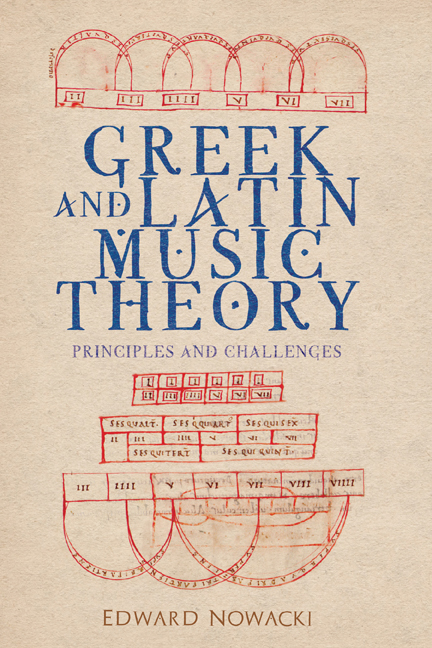13 - The Prologus in tonarium of Bern of Reichenau: A Translation
Published online by Cambridge University Press: 14 August 2020
Summary
Bern of Reichenau, born probably in the late 970s, was abbot of the famous island monastery of Reichenau in Lake Constance from 1008 until his death in 1048. The name Berno (genitive Bernonis) is a Latinized form found in the less reputable manuscripts. His tonary and its prologue can be dated 1021 to 1036 on the basis of the dedicatory letter addressed to Archbishop Pilgrim of Cologne, who held the office during those years. The prologue, though presented modestly as a mere introduction, is comparable in length and scope to other music-theory treatises of its day, including the Dialogus of Pseudo-Odo and the Micrologus of Guido d’Arezzo.
The subjects covered comprise the division of the scale into tetrachords; the intervals of singing arranged in semitonal increments from the semitone to the major sixth; octave equivalence; the controlling force of the four finals; the species of the perfect consonances; the role of the species in constructing the four authentic and four plagal modes; the nominal and actual ranges of the modes; the appropriate notes for beginning; the so-called middle modes; transposition to the sociales, both at the fourth and at the fifth; common errors in singing caused by the misplacement of semitones; and the necessity of observing correct temporal measure.
The work is heavily dependent on Augustine, Macrobius, Boethius, Hucbald, and the Musica and Scolica enchiriadis. Yet as Rausch has observed, it is not an uncritical reprise of shopworn doctrines, but rather appeals to the theoretical tradition to solve current problems, especially the practical problems of liturgical singing. In this respect, chant scholars will find its numerous musical citations useful as complementary witnesses to the tradition transmitted in the musical manuscripts. And in assigning the species of the diatessaron and diapente to the same numeric classes as their associated modes, it takes an important step in demonstrating the dependence of modal identity on the species, a dependence that would become crucial in modal theories of the following centuries.
The following translation is based on the critical edition of Alexander Rausch and thus omits the interpolations included in the edition of Martin Gerbert, now recognized to be the work of other authors and not part of Bern's authentic text.
- Type
- Chapter
- Information
- Greek and Latin Music TheoryPrinciples and Challenges, pp. 131 - 148Publisher: Boydell & BrewerPrint publication year: 2020

